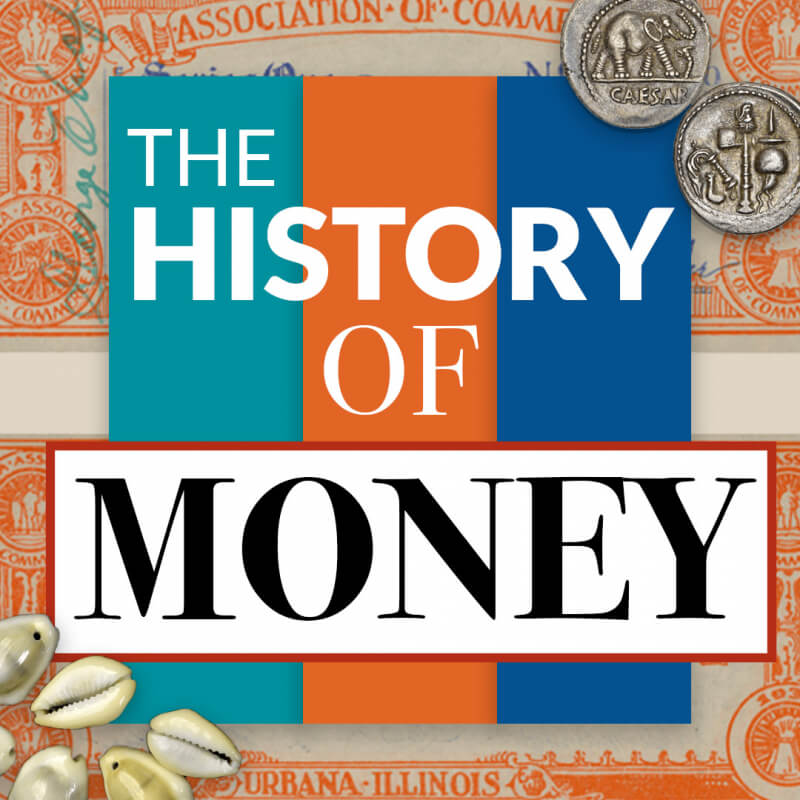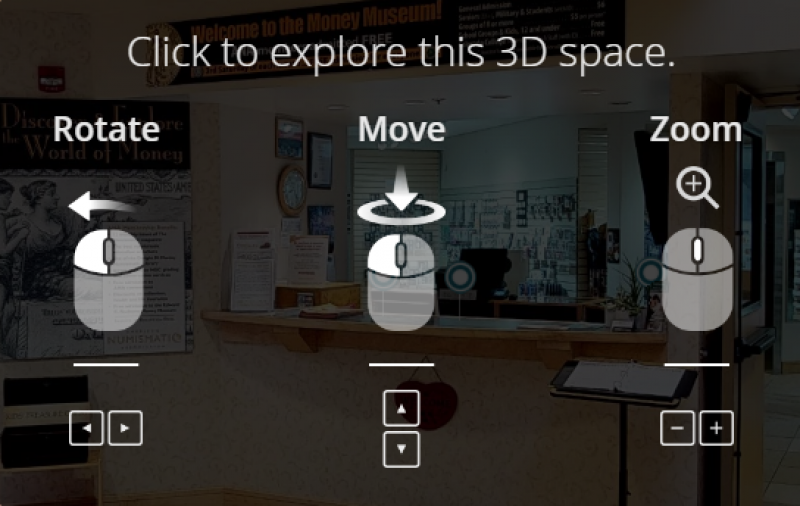History of Money Exhibit 360° Virtual tour

Money is anything that people will accept as payment in exchange for goods or services. Evolving for the last 10,000 years, the earliest forms of money offered a system whereby people could determine the comparative value of items (for example, an axe or a cow). Money facilitated more than just buying or selling things — it became a mark of status — a characteristic it retains today.
Eventually, someone came up with the idea of using precious metals (gold, silver and their alloys) as money. About 4,500 years ago in Mesopotamia and Egypt, gold and silver began to be traded in the form of metal bars or bits of wire. Another big development occurred around 650 B.C., when small, round lumps of electrum (a naturally occurring alloy of gold and silver) were produced in a standard weight and marked by the issuer. Since then, the appearance of coins has changed, but their purpose as a monetary instrument has not.
First documented in China in the 8th century A.D., paper money has become the most prevalent medium of exchange, with the possible exception of credit cards.
Find out more about all types of money, along with emergency money, tokens and other currency, as you explore The History of Money Virtual Exhibit!
Navigation Instructions
Use your mouse and/or your arrow keys to navigate through the rooms. When you see a round target, click on it to see more information about the display.
We hope you enjoy your virtual visit! We’ll be adding more links over time, so be sure to come back again to see what’s new.
Navigation Keys/Mouse Operation
